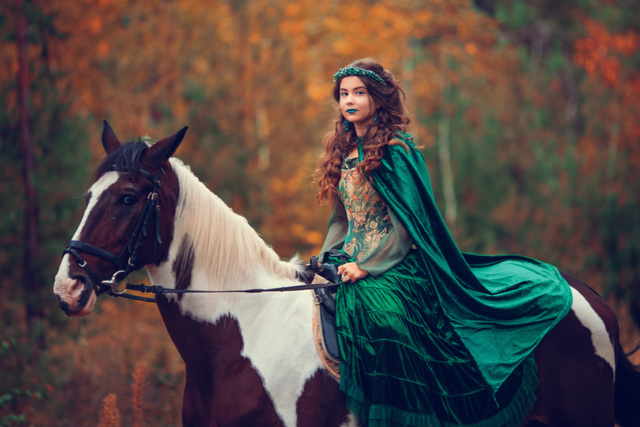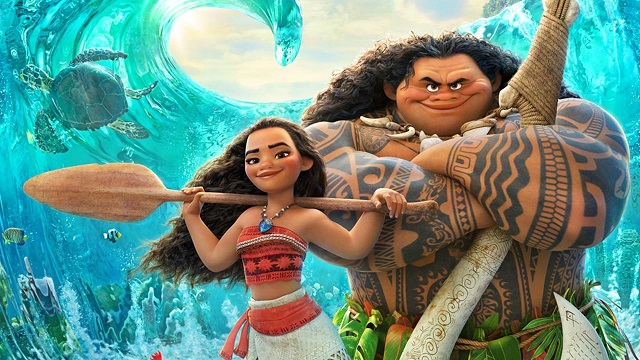
"Some Day My Prince Will Come"—who doesn't remember singing that song as a little girl? Poor Snow White. She needed a man to come breathe life into her. And she is not the only one!
- Sleeping Beauty and Cinderella both waited around until a prince came and rescued them.
- Belle fell in love with the Beast even though he is keeping her prisoner in his castle.
- In The Princess and the Frog, Tiana falls in love with Prince Naveen despite the fact that he is cocky, spoiled and arrogant.
- Brave's Merida was a little better but her storyline still revolved around her marriageability to her various unimpressive suiters.
- Elsa in Frozen didn't have a love-interest, but Disney made up for that by having her sister Anna wooed by both Hans and Kristoff. (Funny, but in the merchandise stakes Elsa outsold Anna.
- In The Little Mermaid, Ariel is ready to give up everything, including her own voice, for a man she glimpsed just once for goodness' sake!
What are the messages that we are sending to our little girls?
And then came Moana. Phew!
If you haven't seen the movie, Moana is a 16-year-old Polynesian girl and the future leader of her village. When danger threatens her island, she goes out on a quest to save her people. She teams up with a burly Demi-God along the way, but in the end, she is the one who saves her people. A strong woman on a hero's journey. I'm sure that Disney was tempted to include a handsome villager flirting coyly from behind his palm tree, who may or may not kiss her when she returns, but they let Moana's story be about her journey.

Where are our role models?
It's not just Disney. There are almost no authors writing female characters that don't depend on a romance subplot to carry a book. This isn't to say that there isn't a wonderful place for romance in literature—who doesn't love a great romance? The problem is that female characters are nearly always driven by romance, whereas their male counterparts tend to be much more varied and complex in their motivations.
That's because the Hero's Journey, Campbell's famous framework for the classic tale of a hero on a quest, doesn't work well for a female protagonist.
Consider the role of women in the Hero's Journey per Campbell. They often had small roles in society, rarely wielded political power, and were either wives and mothers, seductresses and villains, lovers and conquests—but rarely the celebrated victors.
There are only two stages out of the seventeen stages Campbell describes that speak in terms of women:
The Meeting with the Goddess
This is the stage where the hero discovers a powerful love, either a true love soulmate or a divine maternal metaphor. These female roles aren't partners, allies, or equals, but someone to be honored or protected, even idolized on a pedestal.
Woman as Temptress
The hero faces a powerful temptation that threatens to divert him from his path towards his destiny. Campbell used a female as the tempter because so many classic stories have a male protagonist who can barely contain his male lust.
So yeah, according to Campbell, women can be Godesses or Temptresses. That's it. Putting too much importance on this frankly misogynistic model only reinforces the sexist limitations we see in current film and literature.
God bless Goodreads
One editor on Goodreads put together a list of "Fiction/Novels with Female Protagonist That Aren't About Love or Romance." Granted, there are only a couple hundred books on the list, but we have to start somewhere. Let us know in the comments below how many of these books you've read.
Let's create a Heroine's Journey
We need a strong female heroine who experiences a mythic coming of age tale. Our Heroine's Journey must include elements that reflect choices made by young women today and the different values that motivate women compared to men.
Choices like whether to have children or not. How about balancing family and work lives? Men don't really face those challenges as much as women. Or how about the myriad relationships that women have: friends, family, lovers, coworkers, etc. A woman often supports everyone else's journey instead of her own. Finally, don't forget how women often put others above her own glory or survival. She's quite the humble hero.
See how the Heroine's Journey will split from the Hero's in unintended ways?
Or maybe your heroine's journey has nothing at all to do with challenges specific to women. Maybe she needs to save the planet from an asteroid or bring down a corrupt police commissioner or find a serial killer, and she is just simply far too busy for a romance!
So don't throw Campbell's Hero's Journey out the window. Inherent in that model is a coming of age tale that works, regardless of gender. Someone, male or female, gets drawn into an adventure, much like Disney's Moana on her quest to save her people. The protagonist must be transformed in some way and become an epic champion people talk about for years.
The beauty of a realistic Heroine's Journey based on modern women's struggles is she'll more than likely have a team of people she works with, instead of a solo hero on his lone path. That means your job is much more fun because you get to create story arcs for each member of her team. Thus, more voices in your head.
Final thoughts
Have we convinced you that not every heroine needs a love interest to make your novel interesting? Wouldn't a fresh, new look at Campbell's Hero's Journey from the perspective of a strong woman be great fodder for a story?
Just in time for National Novel Writing Month (NaNoWriMo), we challenge you to a duel. Dueling pens, that is. Let's see who can create the most compelling female protagonist without a love interest.
This certainly doesn't mean that sex is off the table because we all know strong women can have sex with whomever they want. The only restriction is there can't be an undercurrent of romance anywhere in your story.
Tell us below all about your strong female characters!

